Jason analyzes the recent sale of Harmonix, and what it means for the future of rhythm game sales.

A few months ago, Viacom sold off rhythm game developer Harmonix for a reported amount of fifty dollars. The most shocking aspect of this trade is that Viacom originally bought Harmonix for $175 million. Apparently the trade gives Viacom about $150 million in tax benefits, which is quite a hefty number, itself, but still, it seems like this is a major failure on Viacom's part, which reflects as a failure on the part of Harmonix, itself. A little while later, Activision reported that they will not publish a new Guitar Hero or DJ Hero game in 2011 after disappointing sales of the previous entry, simultaneously halting future DLC for the two franchises. The once-popular music gaming genre appears to have come to a screeching halt after oversaturation and the companies' failure to understand the market.
Personally, I feel Harmonix's Rock Band issues aren't because the music genre, as it appears in Guitar Hero and Rock Band, is dying. I believe that just as the whole industry of music, record labels, and concerts exists, so can the video game aspect of the music industry. Rather, it was poor business practices and a terrible model of expansion that plagues GH and RB. To begin, plastic instruments with minor electrical wiring are sold at too high a price. They represent something more like the razor rather than the blade in a long-term purchase commitment, so the pricy peripherals come across as double-dipping.
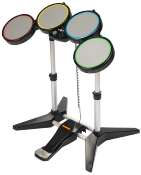
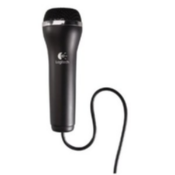
More, game and peripheral compatibility has been downright confusing. It's clear from the beginning, there was no long-term plan in place for success, as Activision and Viacom were unable to negotiate instrument cross-compatibility. Furthermore, when Guitar Hero 3 launched on the Wii, this generation's most popular console, extra guitar controllers, as well as open modes to play songs cooperatively out of the box, were unavailable. Guitar Hero 3 launched as a single-player game on the Wii, showing a lack of foresight in the popularity of the genre. Releasing Rock Band on the Wii half a year later than on other consoles showed the same myopia. Not only that, but the Wii versions of either game had no DLC, meaning no after-market purchases of profitable material.
Unfortunately, these sequels did little to offer solutions to the money-making problems of the initial titles. At this point, accessories were sold out of bundles on all consoles, but again, the instruments were far too expensive compared to cost, and had trouble taking up space on store shelves. Some instruments were compatible with some games, but not all. Drumsets had four, five, or even six "heads" to choose from, which likely confused eager markets even more. Wii versions lacked simple abilities for add-on DLC, requiring bulky space on the Wii's system memory or forced the usage of "tiny" 2 GB SD cards. On other consoles, it was possible to transfer songs forward to the latest releases, but only for a fee. The result? Music game players faced a choice of paying for content they already possessed a second time for minor convenience. Even still, people who owned both Guitar Hero and Rock Band had no single-disc solution, and no true guarantee that the games and songs purchased would be forwards-compatible.
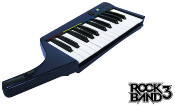
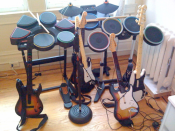
That leads us to Rock Band 3's launch. It has a handful of songs (83) that cover diverse genres, forcing purchasers to synthesize competing interests in order to play on keyboards, pro drums, and pro guitars. It isn't fully backwards compatible, and again, Rock Band 2 owners face the choice of paying to move the disc's music forward. Again, competition between plastic controller brands, specifically with drums, confounds customers. Again, the Wii version is the inferior version, with incomplete music shops online and numerous in-game glitches. One of the shining ideas presented at E3, the ability to play music on a real electric guitar wasn't even made available until March, five months after the game's release. Those who have purchased DLC in the past will have to re-buy songs if they want the new instruments and modes to remain compatible. Guitar Hero took a more narrow turn, focusing on video gamers, rather than social gamers, a move that narrows the genre's audience.
So what's the solution? The Rock Band platform needs to cease expanding to survive. Forget new instruments and game modes aside from what's already there, and focus on long-term profitability. The next Rock Band release needs to be a digital one, or perhaps it needs to take an even stranger move. In-store kiosks could be created to allow people to master their own Rock Band discs. Imagine Rock Band's 1000+ song library at a kiosk's disposal. For $30, you can make a game with 20 songs, $40, one with 30, etc, etc. Rather than facing 5-10 songs on each disk players find favorable, the entire disc's catalog will be one to enjoy. The songs, when applicable, would be fully compatible with all instruments and can be installed to the open Rock Band downloadable title mentioned earlier this paragraph. It wouldn't be an easy transition. In fact, it would be expensive. Still, it would ensure Rock Band's longevity into the future as a music game platform, rather than just a video game.
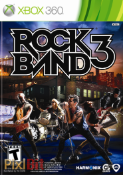
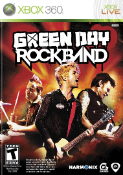
This change would assure customers that they'll be able to use the music they buy in the future, for one. Instruments would remain useful, too. No longer would sales rely on an annual update to the series, but that doesn't mean that something like a simultaneous launch of a new album or single in digital and physical platforms couldn't also reach Rock Band's online store or retail kiosks. In the end, the model would be a lot closer to what's worked for the music industry in the past and in the present, and not what's worked for video games. But Rock Band and Guitar Hero were never strictly about video games, and that's what Activision and Harmonix have never really seemed to figure out, and is likely why their model hasn't really worked the past few years.
It's not a fully fleshed out idea and I don't understand all of the costs involved, but I believe this approach would focus on earning revenue, rather than on expanding functionality and innovation in a market that's confused and divided on which functions and innovations are even accessible from game to game. Maybe something like this will happen in the future or maybe record labels have contracts in place to prevent it from happening. Is it too late for the musical instrument gaming genre to save itself, or are we doomed to suffer an innummerable mass of dancing titles to get our music gaming fix?










Comments